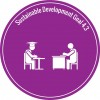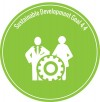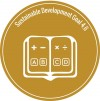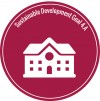Agenda for sustainable development and quality education
 Council of Europe’s vision of quality education for all
Council of Europe’s vision of quality education for all
Everyone should have the right to an education of quality in order to have better chances in life, such as employment opportunities and better health, and also to participate in political life.
The overarching aim of the Council of Europe’s Education program is to empower learners with the competences they need to participate in democracy, exercise their human rights and value those of others, and respect the rule of law.
Achieving sustainable development requires education systems institutions, and schools to provide students with knowledge, understanding, the ability to act, and the will to act, which implies that in some situations one may be able to act but should refrain from doing so. They must develop values, skills, attitudes, and knowledge and critical understanding.
Millions of children are still denied their right to education. Restricted access to education is one of the surest ways of transmitting poverty from generation to generation.
Our vision is that of an education of quality, free from discrimination, providing a secure and non-violent learning environment, in which the rights of all are respected. It develops children’s and adult’s personality, talents and mental and physical abilities to their fullest potential and encourages them to complete their educational programmes. It promotes democracy, respect for human rights and social justice in a learning environment which recognises everyone’s learning and social needs. It enables pupils and students to develop appropriate competences, self-confidence, and critical thinking to help them become responsible citizens and improve their employability. It passes on universal and local cultural values while equipping pupils and students with the faculties to make their own decisions. Certification of the acquired knowledge and competences is carried out transparently, on the basis of a fair assessment, and enables further study, employment and other life opportunities.
An education of quality relies on qualified teachers who are committed to continuous professional development and is free from corruption.
 Our activities on quality education
Our activities on quality education
The Council of Europe’s numerous activities on education are organised to respond to this vision of quality education, which is very much in line with the aims of the targets for the Sustainable Development Goals, and more specifically the 7 targets and 3 means of implementation of Sustainable Development Goal 4.
The Council of Europe’s particular focus is on projects that contribute to building democratic and inclusive societies through the development of a culture of democracy, by promoting education for democratic citizenship and human rights education for all.
The Reference Framework of Competences for Democratic Culture (RFCDC), for example, offers member States and their educational institutions guidelines for competences for democratic culture and intercultural dialogue and is intended for all levels of education. Activities on language learning are a key component, since language is crucial for enabling access to education and, in addition, fosters social competences and competences for democratic citizenship, such as inclusivity and valuing diversity. In addition, in 2023, the Education Department launched an initiative to develop a guidance document on implementing the RFCDC in the context of Education for Sustainable Development (ESD). This initiative aims to support education systems in equipping learners with the necessary competences to take individual and collective democratic action in support of a low-carbon transition, sustainability and biodiversity preservation.
In recent years, the project on Digital Citizenship Education has been working to enable pupils and students to become competent digital citizens, able to participate actively and responsibly in democratic societies both online and offline. Through its co-operation and capacity-building programme, the Council of Europe offers tailored support to member States, individually or in groups, to identify and promote best practice across a range of education issues, allowing SDG4-related outcomes to be given more visible priority. Since 2018, for example, three specific programmes have targeted reducing poverty among vulnerable groups, such as Roma, supported by funding from EEA/Norway Grants.
Further information:












